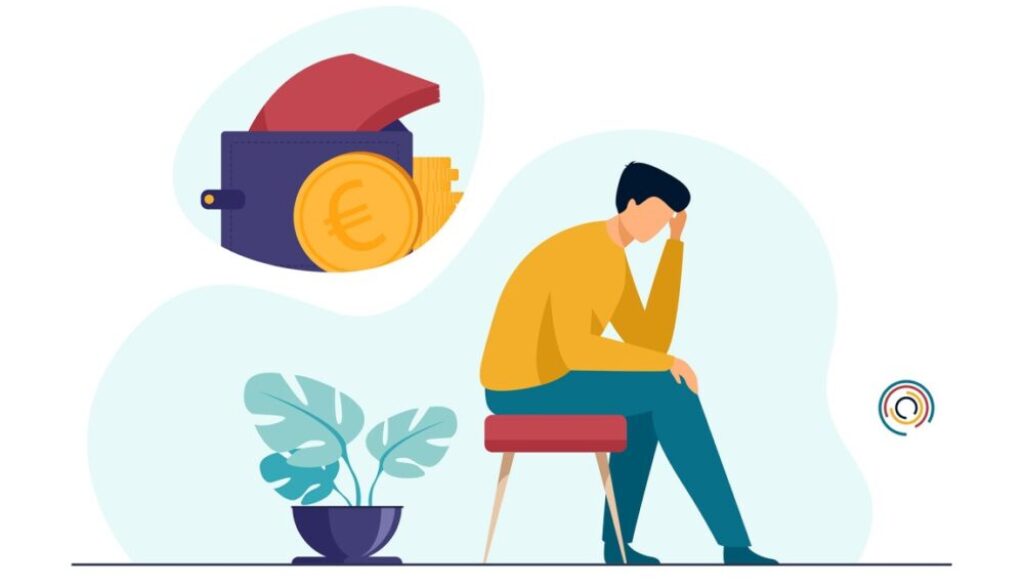Paralyzed by Pennies: How Financial Anxiety Influences our Decisions

In a world where the economic landscape is becoming increasingly intricate and unpredictable, financial anxiety has emerged as a prevalent concern, impacting people from all income levels. This anxiety, characterized by a consistent unease regarding one’s financial circumstances, can significantly affect decision-making, often resulting in unproductive behaviours. By exploring the psychological foundations of financial anxiety, we can more effectively address its consequences and create strategies to lessen its effects.
Origins of Financial Anxiety
Financial anxiety originates from a variety of factors, including economic fluctuations, rising debts, and societal expectations for material achievement. A survey from the Reserve Bank of India in 2022 found that almost 60 per cent of Indian households identified financial insecurity as a major source of stress. Influences like inflation, unemployment, and unexpected costs increase this anxiety, making it challenging for individuals to feel a sense of financial control.
The role of the media is also significant in heightening financial anxiety. Stories that spotlight economic declines or market instability tend to instil fear, causing individuals to adopt a mindset of scarcity. This perception of having limited resources can skew financial priorities, leading to an aversion to spending or investing, even when it may be advantageous.
How Anxiety Affects Decision-Making
Financial anxiety impacts decision-making by influencing cognitive and emotional functions.
- Loss Aversion: Linked to behavioural economics, loss aversion signifies the inclination to dread losses more than appreciate similar gains. Those who feel financial anxiety frequently shy away from risks, such as investing in long-term assets, choosing the perceived security of cash instead. This cautious stance can impede the growth of wealth over time.
- Short-Term Thinking: Anxiety often concentrates focus on immediate issues, resulting in hasty choices. For example, someone under financial pressure might opt to pay off smaller debts with lower interest rates (known as the “snowball effect”) rather than tackling higher-interest liabilities, which would be a more prudent financial decision.
- Avoidance Behaviour: Financial anxiety may lead to procrastination or completely sidestepping financial planning. The apprehended difficulty of managing finances often causes individuals to postpone essential decisions, like retirement planning or buying insurance
Societal and Generational Patterns
Financial anxiety is especially felt among younger demographics, who encounter distinct economic hurdles such as student debt and soaring housing prices. A report by Deloitte in 2023 indicated that nearly 75 per cent of millennials and Gen Z participants voiced worries about their financial futures. This generational anxiety results in postponing life choices, such as marriage or purchasing a home, as individuals try to reconcile immediate financial needs with long-term goals.
Additionally, societal norms and expectations can amplify financial anxiety. The culture of comparison, fuelled by social media, often drives individuals to overspend to project a certain lifestyle. This cycle of spending and accruing debt further intensifies financial pressure, creating a self-perpetuating cycle.
Disrupting the Financial Anxiety Pattern
Tackling financial anxiety necessitates a comprehensive approach that merges practical solutions with psychological strategies.
- Financial Literacy: Education is vital in alleviating financial anxiety. Workshops and digital resources that focus on budgeting, investing, and debt management can empower individuals to take charge of their finances.
- Mindfulness Practices: Methods such as mindfulness meditation or cognitive behavioural therapy (CBT) can assist individuals in coping with the emotional elements of financial anxiety, promoting clearer thought processes and improved decision-making.
- Professional Guidance: Consulting financial advisors or counsellors can simplify intricate financial issues and offer tailored strategies to help relieve stress.
- Emergency Funds: Creating a financial safety net can enhance feelings of security, allowing individuals to handle unforeseen expenses without resorting to high-interest loans.
Conclusion
Financial anxiety extends beyond personal worry; it is a communal challenge that influences how individuals manage their resources, relationships, and aspirations. By examining its psychological and behavioural aspects, we can create more effective methods to alleviate its impacts. The path to financial stability starts with small, well-informed actions that enable individuals to reclaim control and self-assurance in their choices. By taking these steps, we can transition from a state of inaction to one of proactive financial wellness.
~By Anamika Vishnoi, IMS, Lalkuan, Ghaziabad

